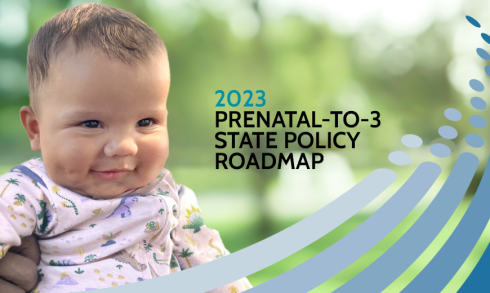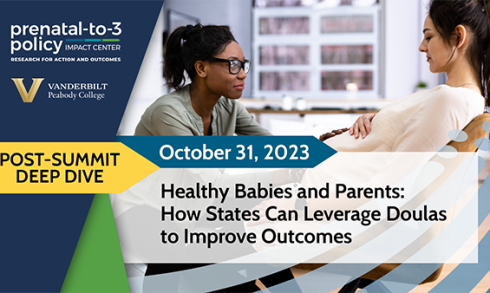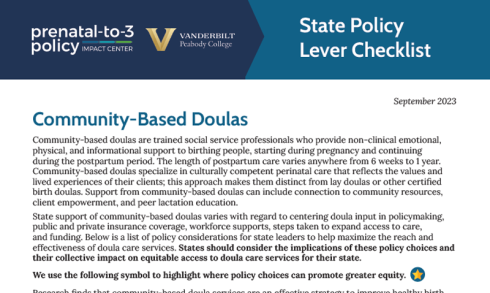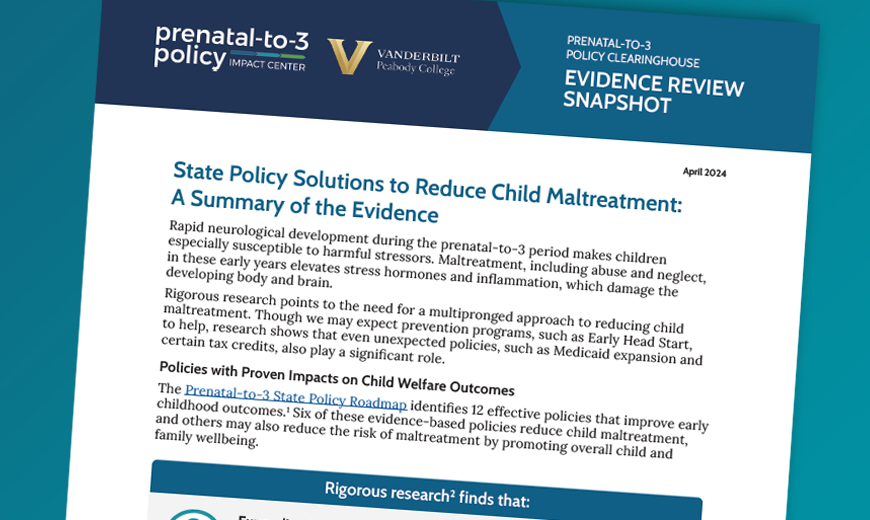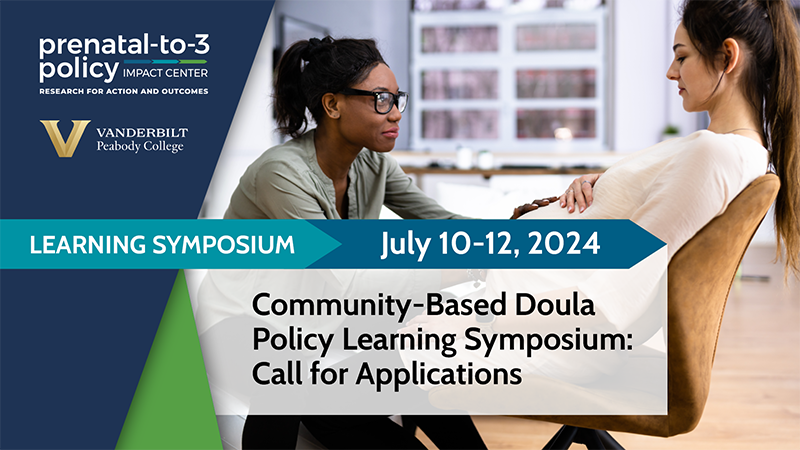- Home
- /
- Research Topics
- /
- Doulas
Doulas
Community-based doulas are nonmedical, unlicensed, trained professionals who provide emotional, physical, and informational support to birthing people during pregnancy and up to one year postpartum. Community-based doulas differ from lay and other birth doulas because they are specifically trained to provide culturally sensitive care and focus on those who are more likely to experience discrimination in traditional healthcare settings.
Featured Resources
Strong causal evidence of community-based doula programs has demonstrated that doula support increases attendance at medical appointments and education classes, encourages responsive parenting behaviors, and enhances child health and developmental outcomes such as breastfeeding initiation rates and safe sleep practices.
This webinar followed our virtual 2023 National Prenatal-to-3 Research to Policy Summit. At the Summit, we explained why we added community-based doulas to our Roadmap—this webinar took a deeper dive into the issue.
Rigorous research indicates that community-based doula services are an effective strategy to improve healthy birth outcomes. This checklist covers the policy levers that states may use to increase access to doulas.
Related Resources
- Blog
- |
- Blog
- |
- Event
- |

